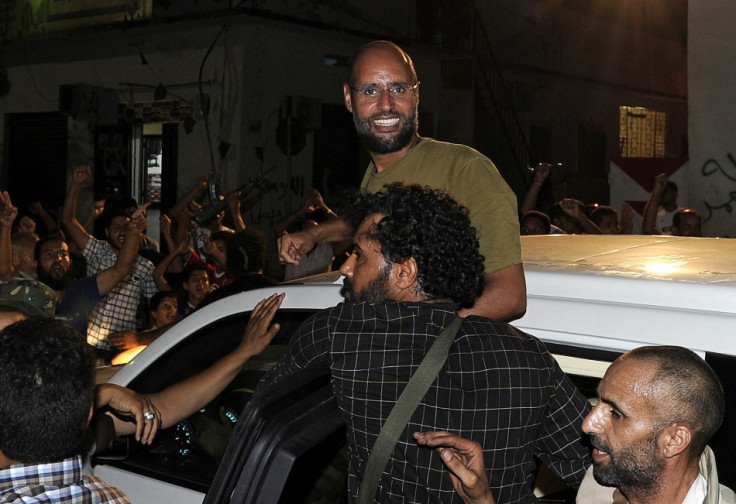Can Gadhafi Still Strike Back?

Saif al-Islam, appearing in the streets of Tripoli Tuesday morning, proclaimed: "We broke the backbone of the rebels. It was a trap. We gave them a hard time. So we are winning."
Could he be right, or is the Gadhafi camp just pretending it can still shift the situation in its favour? The situation in Libya is very complex, and for months conflicting reports have emerged. Saif's appearance hours after his supposed capture puts the National Transitional Council's credibility in question and highlights poor communication between the troops on the ground and the official leadership.
Reports emerging from Tripoli Tuesday suggest that scenes of jubilation have now given way to anxiety. Whether the Gadhafi camp really can mount a new assault on the capital or not, the Libyan leader has proven he is still able to instil fear in his enemies.
Gadhafi swore his troops would fight "until the end," and it seems he was right. Despite the rebels being in control of most of the capital, heavy fighting is still being reported and loyalist troops are still protecting their leader's compound.
Rumour now has it that pro-Gadhafi troops have been reinforced and the BBC reported seeing a convoy of vehicles with professional Gadhafi soldiers driving north of Tripoli.
The Libyan government's troops are fighting back: Some rebel supply lines have reportedly come under attack and hospitals are overflowing with casualties from both camps.
The battle, moreover, continues outside of Tripoli with a renewed fighting reported.
The opposition's TV, based in Qatar, dismissed Saif al-Islam's statement that the government had "broken the backbone" of the rebel offensive, with one of the presenters saying, "It does not matter if Saif al-Islam appears on TV channels or not... The important thing is that Tripoli's youths freed the capital in less than 48 hours. It is just a matter of hours until youths arrest the whole ruling family."
As the opposition TV continued to warn of "snipers and mercenaries who are still there in Tripoli," it seemed clear the battle is not yet over.
Confirming the situation's uncertainty, NATO spokesman Col. Roland Lavoie also said it is difficult to know exactly which areas are still controlled by Gaddafi's forces, telling the BBC, "Each side is claiming victories, and of course clarity is the first casualty in that conflict, because we were bombarded with a variety of information. I would say, globally speaking, it is clear that the Gadhafi regime has lost its grip and control over the capital."
UK International Development Secretary Andrew Mitchell also tried to explain the confusion over Saif al-Islam's alleged arrest, blaming it on the "fog of warfare:" "There was a lot of confusion, there are quite long lines of communication involved. It's inevitable in this situation, with the warfare going on as it is, that there will be some confusion," he told the BBC.
Can Gadhafi strike back? The next hours and days will be crucial in determining the final outcome.
The return of Saif al-Islam has worried more than one analyst, as they now fear he could try to lead the fight against the rebels. Others have also pointed out that the longer it takes for the rebels to take control of the country, the more the territory risks being prone to instability.
Both sides have been distributing weapons to their supporters, and the political and humanitarian consequences of such actions should not be overlooked. Proliferation of weapons is never good news in times of instability and if people feel unsecure there is a risk for them to start taking the law into their own hands. Maybe that is also part of the Gaddafi strategy, increasing confusion and anxiety to divide the opposition.
The aftermath of the conflict is also set to be a difficult phase with NATO and its coalition countries already insisting on the importance of their contributions while trying to ensure they will benefit from the NTC being in place. The rebel fighters on the other hand appear reluctant to share the limelight and many have already hinted at a trial of Gaddafi in Libya rather than in The Hague.
© Copyright IBTimes 2024. All rights reserved.





